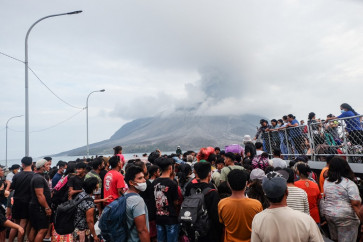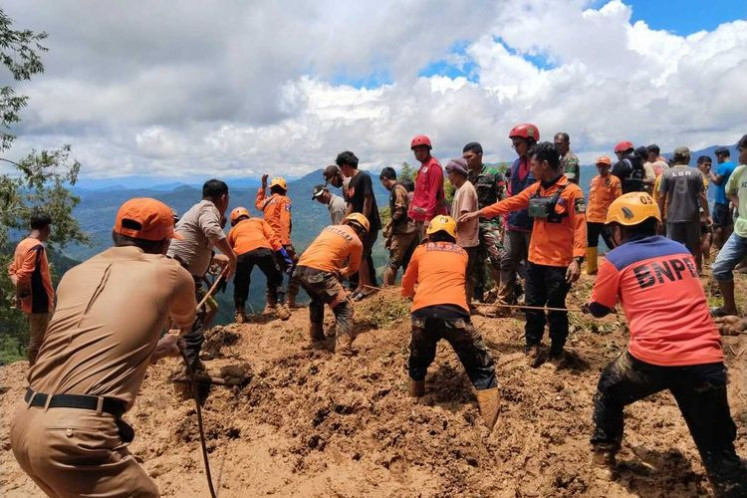Egypt's uprising and Myanmar's democratic transition
The recent uprising in Egypt ignites the most important issue, which is the question of capability of a civilian government taking control over a long-lasting dictatorship after a revolution
Change Size

T
he recent uprising in Egypt ignites the most important issue, which is the question of capability of a civilian government taking control over a long-lasting dictatorship after a revolution.
It appears that the 'Jasmine Revolution' in 2011 did not bring democracy as the people hoped. In Southeast Asia, ASEAN's annual meeting in Brunei Darussalam focuses on the issues of South China Sea and international haze that may overshadow other important issues such as democratization in Myanmar.
Seeing such a chaotic situation in Egypt, how could we avoid such calamity in Myanmar?
First of all, if a peaceful democratic change were to happen in Myanmar, we would need to understand the nature of political legitimacy of the long-lasting junta in Myanmar. By doing so, we could better understand and predict the future of democratic transition in Myanmar. Where does the Myanmar's political legitimacy come from?
Muttiah Alagappa in the book he edited entitled Political Legitimacy in Southeast Asia explained some sources of legitimacy. These include shared norms and values such as ideologies and religion, the proper use of power by the government and consent of the governed.
In Myanmar, the concepts of legitimacy Alagappa suggested what can be applied using what is divided as the old traditional and the new modern sources of legitimacy.
The old traditional legitimacy includes traditional belief such as ideologies and religion. The junta uses this type of legitimacy since it took power in 1962. The new modern legitimacy sources comprise a more rational-based legitimacy such as consent of the governed and election. The junta tried to attain this type of legitimacy since the '8888 uprising' in 1988.
First, the old source of legitimacy. In Myanmar, the sense of nationalism is a critical drive for legitimacy. During the period of 1962-1988, it was one of the official ideologies of the government's party, the Burma Socialist Program Party.
Nationalism always becomes the legitimizing factor to rule Myanmar under the banner 'National Unity'. It is argued that the more pressures from the West and international communities on the issues of human rights and democratization, the more integrated the Myanmar people are.
Religion and symbolism are also significant traditional legitimacy tools in Myanmar. Myanmar leaders always associate themselves with Buddhism. U Nu effectively used Buddhism as a legitimizing tool to win the election of 1960 by associating it with the Burmese tradition and the state. He went to the monasteries six times after becoming prime minister and even promised that Buddhism would be the state's religion.
After U Nu, Ne Win and Than Shwe both created pagoda during their time in office while Khin Nyunt was in charge of repairing the Shwedagon Temple, the most symbolically important pagoda in Rangoon.
Another significant symbolism in the government's policy appeared on the junta's decision to move the capital to Naypyidaw in 2006. The new capital was a sacred palace to designate the royal capital during the Burmese kingdom's history.
The act also reflects the similar practice under the Burmese kings who moved the capital many times. A more strategic reason behind the capital move is the location of the old capital, which is prone to attack from its adversaries and it is easier to control the ethnic minorities.
Second, a new modern type of legitimacy, which includes the consent of the governed such as through elections. From 1960 to 1990, the junta gave no attention since it was just a one-party socialist system. The junta tried to win the first election in 1988 but failed.
Yet, instead of transferring power to the winner, the junta ruled with decree until the new referendum of the constitution in 2008. In 2010, without Aung San Suu Kyi's participation, the election was held and the government's party won more than 50 percent of the vote. It has strengthened the government's legitimacy to rule Myanmar under a retired military commander, Thein Sein.
How do these old and new sources of legitimacy influence Myanmar's democratization?
Democratic transition in Myanmar is a process of transfer of legitimacy from the military to the civilian government. For all parties who are hopeful of this transition, these old and new types of legitimacies are important aspects to be kept intact.
Only by doing so, the country will stay in order; hence, bloodshed could be prevented. Moreover, the future of Myanmar's democracy also depends on the junta itself.
The changes in the constitution, which allowed Suu Kyi to participate in formal politics, came from the military leaders who have a 'reform' mind. The current Myanmar president, Thein Sein, was a former military commander who is considered a moderate and reformist military man. If any outside party forced a revolution in Myanmar as in Egypt in 2011, the same result might also happen in Myanmar.
Having a similar experience in terms of military domination in politics for 32 years, Indonesia could constructively play a more important role in engaging Myanmar and preparing the country for a peaceful transition.
As Myanmar is becoming more open to the international community, it is the right time for Indonesia, an ASEAN brother, to initiate a more intense engagement with Myanmar to avoid a misstep that could lead to an undesirable situation like in Egypt. Regional stability is, after all, the republic's own national interest.
The writer received his master of science (Asian Studies) from S. Rajaratnam School of International Studies, Nanyang Technological University, Singapore.









